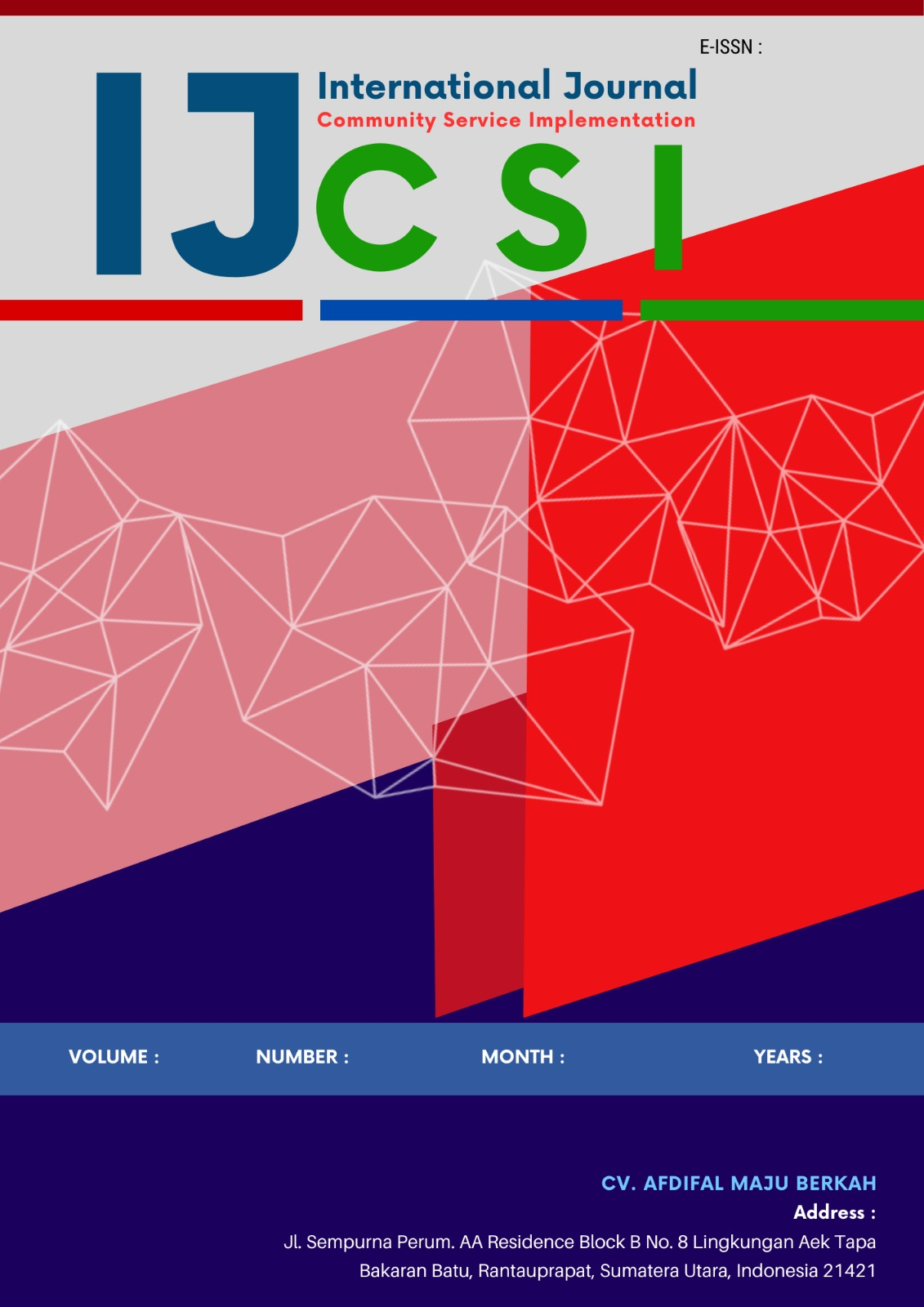Ecobrick Innovation for Economic Empowerment and Sustainable Plastic Waste Management
DOI:
https://doi.org/10.55227/ijcsi.v1i3.181Keywords:
Ecobrick, Plastic waste management, Community empowerment, Economic sustainabilityAbstract
This community service initiative in Dringu Village, Indonesia, responds to the pressing plastic waste predicament exacerbated by population growth and challenges in reducing plastic dependence. The village, rich in natural resources, faces environmental threats and significant floods due to waste accumulation, impacting social and economic structures. The program's objectives center around implementing the ecobrick method to train and mentor residents, enhance practical skills in plastic waste management, and economically empower the community by viewing plastic waste as a resource for potential business opportunities. Employing a Community-Based Participatory Research approach, the initiative actively involves the community in issue identification through dialogues, fostering local capacity to independently tackle the plastic waste problem. Key participants include cadre members, PKK, and village officials, forming a robust framework for comprehensive and sustainable plastic waste management. The meticulous preparation by participants involved sorting waste, creating ecobricks by filling plastic bottles with small-cut plastic waste, and adding an aesthetic touch through green painting. Plywood pieces complemented the design, forming a two-level shoe rack. This innovative product not only addresses plastic waste but also presents economic opportunities for the community, fostering self-sufficiency and overall well-being











